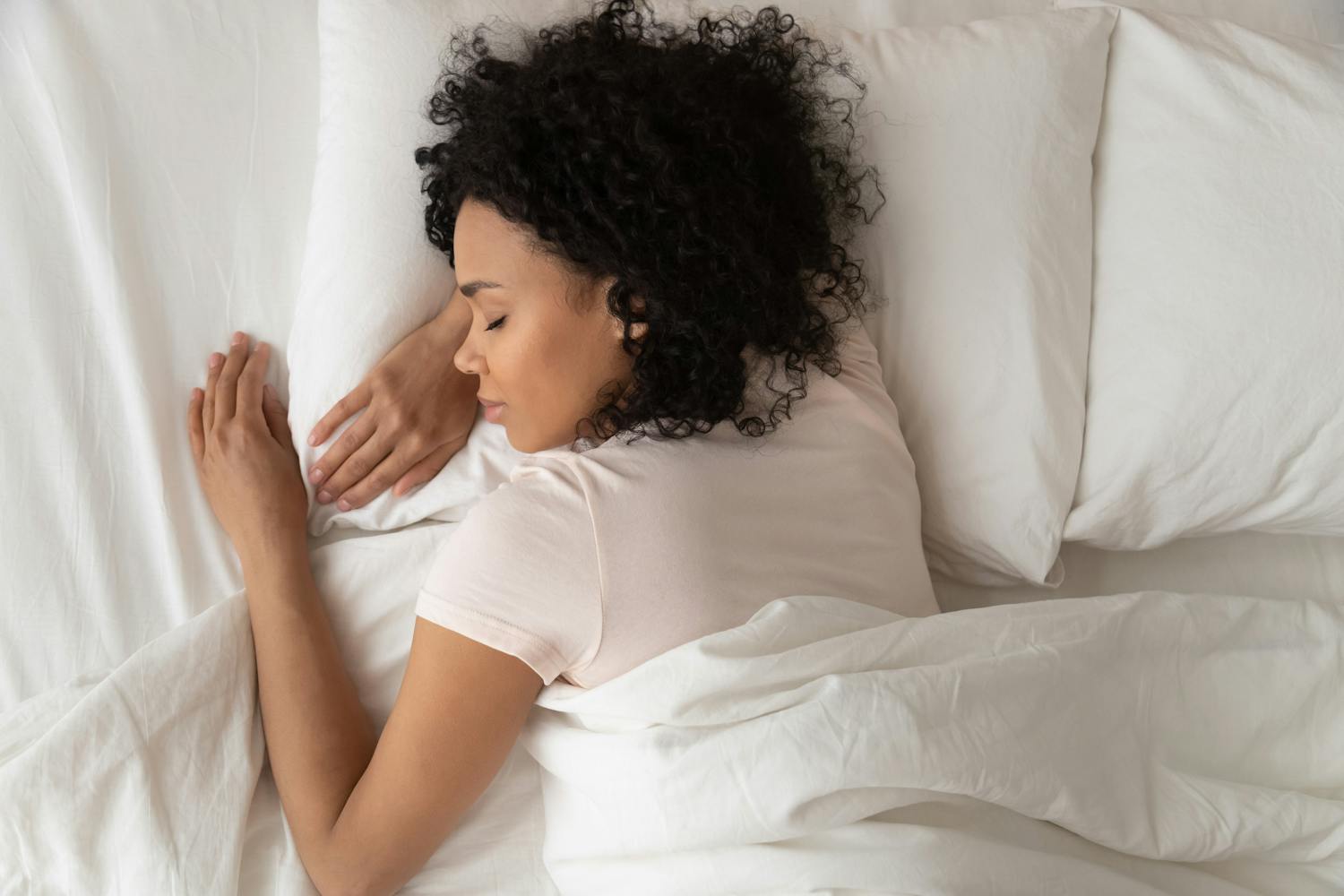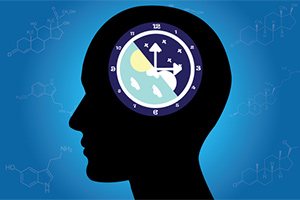Cognitive Behavioral Therapy for Insomnia (CBT-I) - Proven Methods
Cognitive Behavioral Therapy for Insomnia (CBT-I) - Proven Methods
Blog Article
Efficient Therapy Solutions for Handling Sleep Disorders and Enhancing Relaxed Rest
In the realm of medical care, the management of sleep problems and the pursuit for peaceful sleep are critical elements of general well-being. Effective therapy solutions supply a complex approach to take on these difficulties, ranging from cognitive behavior interventions to holistic techniques that promote relaxation and mindfulness. The exploration of numerous methods, including the assimilation of medicine and light therapy, opens a realm of possibilities in the pursuit of much better rest high quality. As we navigate the complex landscape of sleep conditions and look for to improve our sleep experience, a much deeper understanding of these treatment options might hold the secret to unlocking an extra relaxing and fulfilling corrective journey.
Cognitive Behavior Modification for Sleep Problems (CBT-I)
Cognitive Behavioral Therapy for Sleep Problems (CBT-I) is an organized, evidence-based therapy approach that concentrates on dealing with the underlying variables adding to rest disruptions. This sort of treatment aims to change actions and thoughts that exacerbate sleeping disorders, ultimately advertising healthy sleep patterns. CBT-I generally entails several crucial parts, including cognitive therapy, rest limitation, stimulus control, and rest health education.
Cognitive treatment helps people recognize and transform adverse idea patterns and ideas about sleep that may be impeding their capability to drop or remain asleep. Rest restriction entails limiting the quantity of time invested in bed to match the individual's real rest duration, therefore boosting sleep efficiency (insomnia therapy). Stimulus control strategies aid develop a solid association between the bed and sleep by motivating people to visit bed only when sleepy and to prevent engaging in promoting activities in bed
Moreover, rest health education and learning concentrates on developing healthy sleep routines, such as keeping a consistent rest timetable, creating a relaxing going to bed regimen, and optimizing the rest setting. By attending to these elements adequately, CBT-I uses an effective non-pharmacological treatment for taking care of sleep problems and enhancing overall rest high quality.
Rest Hygiene Practices
Having actually established the structure of cognitive restructuring and behavior modifications in resolving sleeplessness through Cognitive Behavioral Treatment for Sleeping Disorders (CBT-I), the emphasis now moves towards discovering vital Rest Hygiene Practices for keeping optimal rest quality and general well-being.
Rest hygiene practices include a variety of routines and ecological variables that can considerably affect one's ability to sleep and stay asleep throughout the night. Constant sleep and wake times, producing a relaxing going to bed routine, and enhancing the rest environment by keeping it dark, silent, and cool are crucial parts of great rest health. Restricting direct exposure to screens before bedtime, preventing energizers like high levels of caffeine near going to bed, and engaging in regular physical activity during the day can likewise advertise far better sleep high quality.
Moreover, exercising relaxation methods such as deep breathing exercises or meditation prior to bed can aid soothe the mind and prepare the body for sleep. By incorporating these sleep health methods into one's everyday routine, people can develop a healthy rest pattern that sustains relaxing sleep and total health.
Relaxation Techniques and Mindfulness
Executing relaxation techniques and mindfulness practices can play a crucial function in promoting a sense of tranquility and advertising high quality rest. sleep improvement therapy. These methods aim to silent the mind, decrease stress and anxiety, and produce an optimal atmosphere for restful rest. One extensively practiced approach is deep look here breathing workouts, where individuals concentrate on slow, deep breaths to loosen up the body and mind. Dynamic muscle mass relaxation entails tensing and afterwards releasing each muscle group, promoting physical relaxation. Furthermore, guided images can aid transfer individuals to a relaxed place in their minds, aiding in tension reduction and improving rest top quality.
By including these techniques right into a going to bed routine, individuals can signal to their bodies that it is time to loosen up and prepare for rest. On the whole, integrating leisure strategies and mindfulness practices can substantially add to taking care of sleep problems and improving total sleep quality.

Medicine Options for Sleep Disorders
After discovering relaxation techniques and mindfulness practices as non-pharmacological interventions for enhancing rest quality, it is important to consider medication options for individuals with sleep conditions. In instances where way of living changes and therapy do not provide sufficient relief, medication can be an important device in taking care of rest disruptions.
Generally suggested medicines for sleep disorders consist of benzodiazepines, non-benzodiazepine hypnotics, internet antidepressants, and melatonin receptor agonists. Antidepressants, such as trazodone, can be valuable for people with co-occurring anxiety and sleep disturbances - insomnia specialist.
It is important for individuals to talk to a healthcare provider to establish the most appropriate medicine option based upon their particular rest condition and case history.
Light Treatment for Body Clock Guideline
Light therapy, also known as photo-therapy, is a non-invasive therapy technique made use of to control body clocks and boost sleep-wake cycles. This treatment entails direct exposure to bright light that simulates natural sunlight, which helps to reset the body's biological rhythm. By subjecting individuals to certain wavelengths of light, commonly in the morning or night depending on the preferred result, light therapy can More Bonuses effectively change the body clock to promote wakefulness during the day and enhance relaxed sleep in the evening.
Research study has shown that light treatment can be especially advantageous for individuals with circadian rhythm problems, such as delayed rest phase disorder or jet lag. It can also be valuable for those experiencing seasonal depression (SAD), a kind of clinical depression that commonly happens during the cold weather when natural light exposure is decreased. Light treatment is usually well-tolerated and can be made use of along with various other treatment methods for sleep disorders to maximize end results and improve general sleep high quality.
Final Thought
Finally, reliable therapy solutions for managing sleep problems and boosting relaxed rest consist of Cognitive Behavioral Treatment for Sleep Problems (CBT-I), rest health practices, leisure strategies and mindfulness, medication choices, and light therapy for circadian rhythm law. These strategies can help individuals boost their rest high quality and general well-being. It is very important to consult with a healthcare supplier to establish one of the most suitable approach for dealing with rest concerns.
As we browse the elaborate landscape of sleep problems and look for to enhance our rest experience, a deeper understanding of these treatment solutions may hold the trick to unlocking an extra relaxing and satisfying corrective trip.
Sleep constraint includes restricting the quantity of time spent in bed to match the individual's real sleep period, consequently enhancing rest effectiveness. Consistent rest and wake times, creating a relaxing going to bed routine, and optimizing the rest atmosphere by maintaining it dark, peaceful, and cool are important elements of good sleep health. Light treatment is normally well-tolerated and can be used in combination with other treatment methods for rest disorders to enhance outcomes and boost overall rest quality.

Report this page